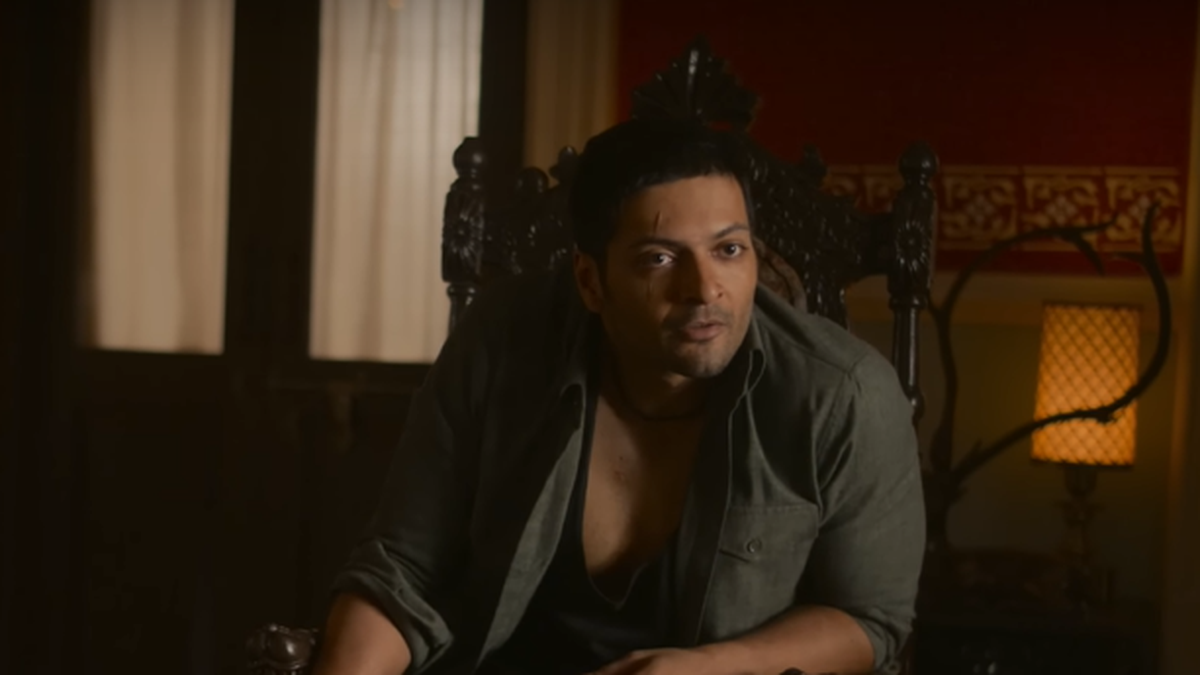In the fifth episode of the third season of Mirzapur, the makers introduce a young man Rahim (Pallav Singh). Obviously, he recites couplets that speak truth to power but in a form where the poetic first line is followed by a punchline filled with expletives. While the opening verse prepares the audience for the profound, the latter wins applause. Living with emasculated dreams, we are told that he wanted to become a civil servant but is currently in prison with a purpose that is as prosaic as the choice of abuses in his poetry.
To my mind, Rahim personifies what Mirzapur is all about. Once again, it takes off like an earnest take on how the nexus between crime and politics in the hinterland fascinates or hallucinates young minds but soon changes gears to provide forbidden pleasures of lugdi sahitya (pulp fiction) that used to sell in large numbers on railway stations before the youth got mobilised towards fantasies made available by cheap data.
Mirzapur (Season 3, Hindi)
Directors: Gurmeet Singh and Anand Iyer
Cast: Ali Fazal, Shweta Tripathi Sharma, Pankaj Tripathi, Rasika Dugal, Anjumm Shharma, Isha Talwar
Duration: 10 episodes, 50-55 minutes each
Storyline: The reign of the Tripathis in Purvanchal is over. Guddu and Golu are pitted against a new contender as they stake their claim to the throne. Will they pass the baptism of fire?
The series is mounted with a consciousness that the interplay of crude language and violence with dollops of sex garners attention and seeks applause by dressing it up like an art form. The good thing is the synergy between the contrasting stanzas remains well-greased in the third canto in what is conceived as an epic.
Directors Gurmmeet Singh and Anand Iyer keep the unpredictability of the series going as Guddu Pandit (Ali Fazal), yet again, presents a capricious combination of delight and dread, the hallmark of the series dotted with internecine battles for power and control over the drug business between emotional bahulbalis and pragmatic politicians.
ALSO READ:‘Kill’ movie review: Lakshya rampages in propulsive bloodfest
With Munna (Divyendu) dead and Akhandanand Tripathi (Pankaj Tripathi) out of the picture for the most part, it is Guddu who is ruling the roost in Mirzapur. But he has yet to win the suzerainty over Purvanchal, for his peers feel he can’t strike a balance between bullets and business. The biggest contender is Sharad Shukla (Anjumm Shharma) from Jaunpur, who seeks to fulfill the ambition of his father, who was killed by Guddu when he was on the payroll of the Tripathis. With the political cover on his side, Shukla has the cards in his favour. But, the mercurial Guddu, supported by the sharp Golu Gupta (Shweta Tripathi), proves equal in the game despite being short-changed by his hormonal rush.
Shweta Tripathi in ‘Mirzapur’ Season 3
| Photo Credit:
Prime Video India/YouTube
The hapless police led by Manu Rishi, who has made a career by depicting the plight of helpless characters, shows some spine this season and makes for a delightful encounter sequence that involves a Bhojpuri star.
The Bihar segment led by Bharat/ Shatrughan Tyagi (Vijay Varma) continues to be a digression despite the writers trying hard to tie it up with the main strand. In comparison, druglord Lala (Anil George) and his daughter Shabnam’s story make an organic shift.
Unbridled violence is the flavour of the season, as we have seen in the other release of the week where the makers, unlike Mirzapur, don’t name the film ‘train’ and go with what happens inside it to simply call it Kill.
Here, it is as much about the vehicle. Advocate Ramakant Pandit (Rajesh Tailang), the conscience of the series in the first two seasons, has concluded after spending some episodes in prison that Darwin was right when he said it is about the survival of the fittest. So, heads are chopped off with impunity, and bullet wounds are pressed to generate unrequited romance in the name of providing catharsis to an audience that seems to be becoming increasingly hard to move.
Set to a background score that can keep the Soho crowd jiving, the series scythes through the liberal criticism of celebrating alpha males by making its female characters very much part of the scheme. The problem is Shweta expands her eyes a bit too much, perhaps in a bid to appear Alpha before Alia Bhatt becomes one. Her performance is in line with the motives of the makers which are very much on display. Isha Talwar, as Madhuri Yadav, is repeating the goongi gudiya (dumb doll) prototype milked many times since conceived for Indira Gandhi in Indian politics. Rasika Dugal’s Beena Tripathi remains the most realistic female character, reflecting the craft of surviving the minefields in a patriarchal space. Ali impresses with his transition, but Anjumm takes the role of a sedate gangster literally. Vijay gets hardly tested, and Pankaj, seen in a cameo, shows how much he is needed to keep Mirzapur on track.
However, for those who know a thing or two about the region’s politics, the caste calculus of mafiosi looks facile. Depicting the dissonance in a political Yadav family is a little too predictable. The series finds Tyagis in Bihar but misses representation of Bhumihar and Rajput strongmen in eastern Uttar Pradesh. The Muslim strongman from West UP is mistakenly defined only by his chaste Urdu.
More importantly, in a ten-episode series, writers often indulge in a game of one-upmanship with the audience. When they suck dry every opportunity to manipulate, the audience is left either emotionally parched or cheated. You feel like that surprise gift offered by Guddu to Shukla at the baithak called for peace.
Mirzapur Season 3 is streaming on Amazon Prime
